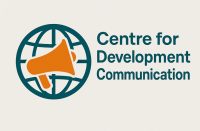For 15 years, I’ve led communication efforts across top NGOs in Nigeria. Over this time, one truth has become impossible to ignore: Development communication is dangerously misunderstood and undervalued.
I have published over a dozen empirical studies on communication theory and practice in respected local and international journals. I currently support three PhD researchers in Development Communication and have served on recruitment panels for communication roles in both NGOs and the private sector.
Yet despite this depth of experience, a troubling pattern persists: to many organizations, communication is still treated as a task, not a discipline.
In March 2025, I was invited to speak at an NGO training held at REIZ Continental Hotel, Abuja. During the program, one of the resource persons gave a session on NGO communication, and reduced it to little more than information dissemination. In his view, communication simply meant posting on social media and taking event photos. Nothing strategic. Nothing analytical. Nothing participatory.
That session crystallized a growing concern: communication is being reduced to PR.
The common mindset?
“As long as the social media is active and reports are going out, communication is being handled.”
This thinking leads to critical roles being handed to people with only basic digital skills — without background in development communication, research, or strategy.
I’ve seen this firsthand. In August 2024, I served on a recruitment panel for a communication officer role. We unanimously recommended the most qualified candidate. Months later, I visited the organization and discovered that the least qualified applicant had been hired.
When I asked why, the Executive Director told me:
“Highly competent communication professionals bring high standards. They question poor messaging, weak strategy, and lack of impact tracking. I’m not ready for that.”
That wasn’t just a red flag — it revealed a deeper, systemic fear of accountability.
In one organization I worked with, communication had no budget. It was an afterthought — handed to whoever could “handle social media.” Strategy, community insight, participatory methods, and impact analysis were all missing.
This is the deeper crisis.
Communication is not just about publicity. It is the bridge between data, people, policy, and change.
Without it, programs fail to connect.
Without it, we speak at people, not with them.
Without it, impact is assumed, not measured.
The issue isn’t a lack of skilled communicators. We exist.
The problem is a sector that hasn’t matured to value our expertise.
It’s time for a mindset shift.
NGOs must stop treating communication as decoration and start treating it as strategy. Because without a communication framework rooted in evidence, engagement, and ethics, even the best-intentioned programs will fall flat.
Donors must demand more.
Leaders must listen more.
And communicators, we must keep speaking up.
Because when communication becomes just PR, development fails.
